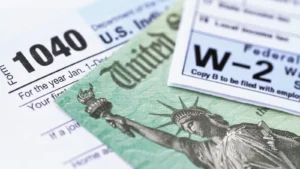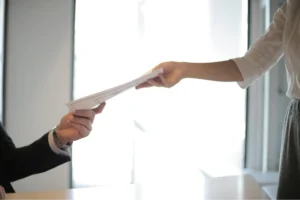
Tax Season 2025: What Business Owners Need to Know & How to Stay Ahead
As tax season approaches for business owners, staying informed about potential tax changes and taking proactive steps can make all the difference in protecting your financial future. Whether you’re a growing business owner juggling multiple ventures, or a long-time entrepreneur focused on transitioning your companyto the next generation, preparing early can help you navigate shifting tax laws with confidence. What Tax Changes Could Be on the Horizon? While 2025 tax laws aren’t set in stone, discussions are underway regarding potential changes that could impact individuals and businesses alike. These changes may involve adjustments to income tax brackets, available deductions, and business tax credits — all of which can significantly affect your business and financial plans. Proactive planning is essential to avoid unexpected tax burdens. DJ Kim, one of our trusted business and tax attorneys, emphasizes the importance of staying ahead: “Tax laws are always evolving. The best way to protect your assets is to regularly review your business and tax plans, and adjust for any anticipated changes before they go into effect.” Tailored Tax Strategies for Every Values-Driven Business Owner No two business owners are alike, and tax planning should reflect that. For the hands-on business owner — the one who thrives on getting involved in every aspect of their business — tax season presents an opportunity to dive into the details. This type of entrepreneur benefits from regular tax strategy sessions and exploring every deduction or credit available. Partnering with an experienced tax advisor can help maximize savings without overlooking critical details. That’s one reason we provide free referrals to trusted CPAs, and to other financial professionals, for all our values-driven business owner clients. On the other hand, the legacy business owner — someone focused on succession planning, and seeking to pay their company forward while reaping thebenefits of their hard work — may prioritize minimizing estate taxes and ensuring a seamless and cost-effective transition for the next generation. Trusts, gifting strategies, and long-term tax planning can protect wealth while honoring the future vision for the business. How to Stay Ahead in 2025 Start Early: Gather your financial documents and schedule time to review them with your tax advisor. Plan for the Long Term: Work with trusted professional advisors (business lawyer, CPA, CFP, CFO, or others) to create a comprehensive tax strategy that aligns with your business and personal goals. Embrace Flexibility: Tax laws can change quickly, so regular check-ins with your trusted advisors can help you plan ahead, and then pivot when necessary. Explore All Options: Research available credits and deductions specific to your industry or your unique business model. By taking a proactive approach, both hands-on business owners and legacy-focused entrepreneurs can navigate tax season with greater confidence and efficiency. Partner with MSB Law for Proactive Business and Tax Planning At MSB Law, we understand that every business owner has unique goals and challenges. Our team is here to provide values-driven business owners with the knowledge and insights needed to prepare for the future, no matter what tax changes may come. Schedule a consultation today to discuss your business and tax strategies, and ensure you’re ready to take on tax season 2025 with confidence.





